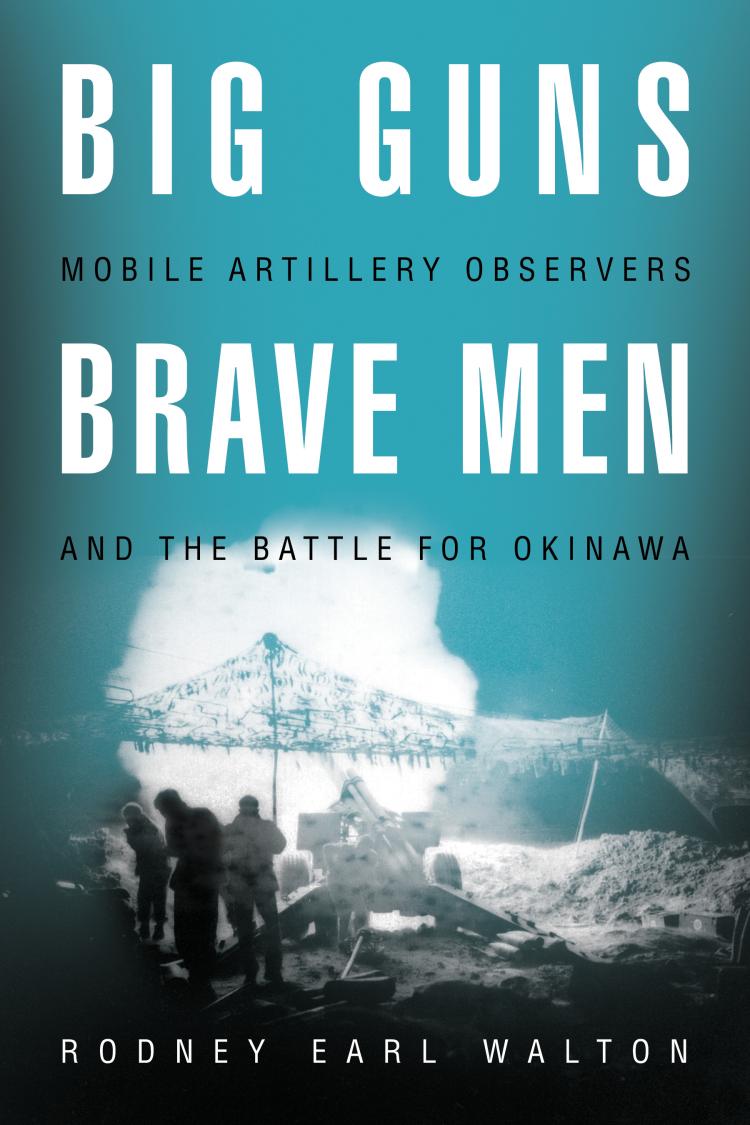"Big Guns, Brave Men"
Mobile Artillery Observers and the Battle for Okinawa
- Subject: eBook Editions | General Military & Naval History | World War II | U.S. Army
- Format:
Hardcover
- Pages:
320pages
- Published:
May 15, 2013
- ISBN-10:
1612511309
- ISBN-13:
9781612511306
- Product Dimensions:
9 × 6 × 1 in
- Product Weight:
19 oz
Overview
Although it was the largest and final battle of the Pacific War, the Battle for Okinawa has long been overshadowed by other dramatic events in 1945. The books that have been written about it emphasize the role of infantrymen, armor, and U.S. Marines. This work takes a fresh perspective and focuses on the vital role played by the U.S. Army’s forward artillery observers—the eyes and ears of American artillery who were among the least recognized heroes of the war. According to Rodney Earl Walton, U.S. artillerymen matched Japanese gunners in intensity and surpassed them in effectiveness because their forward observers were able to provide a much shorter response time to requests for artillery support. Divided into teams consisting of four or five men led by an artillery lieutenant, these observers would spend three days on the front lines directing artillery against enemy positions, return to their artillery battery for three days, and then rotate up to the line of battle again. While trying to maximize the damage inflicted on the enemy, the men had to deal with the ever-present possibility of firing on their own forces. The ability to shift artillery fire throughout the battlefield was a new development in World War II, and its evolution is fully examined in the book.
Walton, the son of one of the forward observers on Okinawa, spent more than twenty years investigating what happened to his father and other artillerymen during the conflict. Interviews with the artillerymen and the infantrymen they supported are central to his story, which is filled with gripping and sometimes humorous accounts of what happened. The work stands as a stirring tribute from the “baby boom generation” to the “greatest generation.”
About the Author
Editorial Reviews
"This book provides a previously unknown perspective on the US Army's role in the Pacific theater. Artillery observers have received little attention in the scholarly literature. While Walton focuses in detail only on Okinawa, he traces the development of artillery observer from the First World War to the Second World War. The extensive use of oral histories adds detail and color to the work. This book is recommended for undergraduate surveys as well as general readers." — H-Net
"With both military expertise and a compelling personal perspective, Walton portrays the impact on the battlefield of the Army's innovative mobile forward artillery observers during the Pacific theater's largest and bloodiest battle: Okinawa. Drawn to the subject by his father's Army service in that campaign, the author mined previously underutilized archives, compiled oral histories, and introduced appropriate technical analysis to produce this extraordinary work." — Maj. Gen. Ralph S. Clem, USAF (Ret.)
"Walton's work sheds new light on the grim struggle for Okinawa, often characterized as the grunt's battle par excellence. This masterly account stands as testament to the previously understated role played by a small cadre of dedicated and courageous forward artillery observers and successfully captures the essence of what it meant to be an embedded specialist sharing the hardships and dangers endured by front-line combat personnel." — Gwyn Davies, Department of History, Florida International University"As a World War II soldier who fought the Japanese in a rifle company of the 96th Infantry Division, I am pleased that the author, Rodney Walton, prepared this book, which describes and explains the important efforts of U.S. Army artillery forward observers during the Battle of Okinawa, Japan. These forward observers were a key element in defeating the Japanese army. Due to their excellent performance and well-trained gun crews, no 'short' artillery round hit my Company L. Well remembered is our forward observer, 1st Lt. Ralph Palm, Battery C, 362nd Field Artillery Battalion, who was awarded two Bronze Star medals before being wounded on May 15, 1945." — Donald O. Dencker, historian, 96th Infantry Division Deadeye Association




